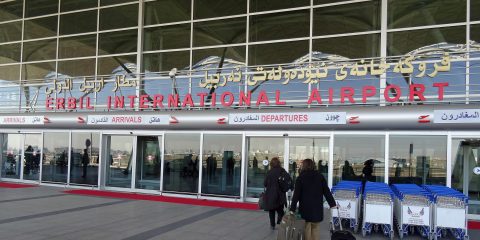Why is oil-rich Kirkuk so poor?
On the way from Erbil to Kirkuk, it starts smelling of oil even before one gets near the oil-rich Iraqi city. Smoke can be seen rising from the white chimneys of small oil refineries on each side of the highway, while heavy oil trucks line up at checkpoints separating Kirkuk province from the Kurdish semi-autonomous […]Mariya Petkova writes for Al Jazeera:
On the way from Erbil to Kirkuk, it starts smelling of oil even before one gets near the oil-rich Iraqi city. Smoke can be seen rising from the white chimneys of small oil refineries on each side of the highway, while heavy oil trucks line up at checkpoints separating Kirkuk province from the Kurdish semi-autonomous region.
Kirkuk's complicated politics become clear at the entrance to the city, where a large statue of a Peshmerga fighter in traditional Kurdish dress waves an Iraqi flag.
When it was unveiled in early 2017, the statue held the KRG flag: red, white, green and a sun in the middle. Two and a half years earlier the KRG - which claims the ethnically mixed Kirkuk as historically Kurdish territory - took control of the city after dispatching its Peshmerga forces to prevent Islamic State of Iraq and the Levant (ISIL, also known as ISIS) from capturing it.





